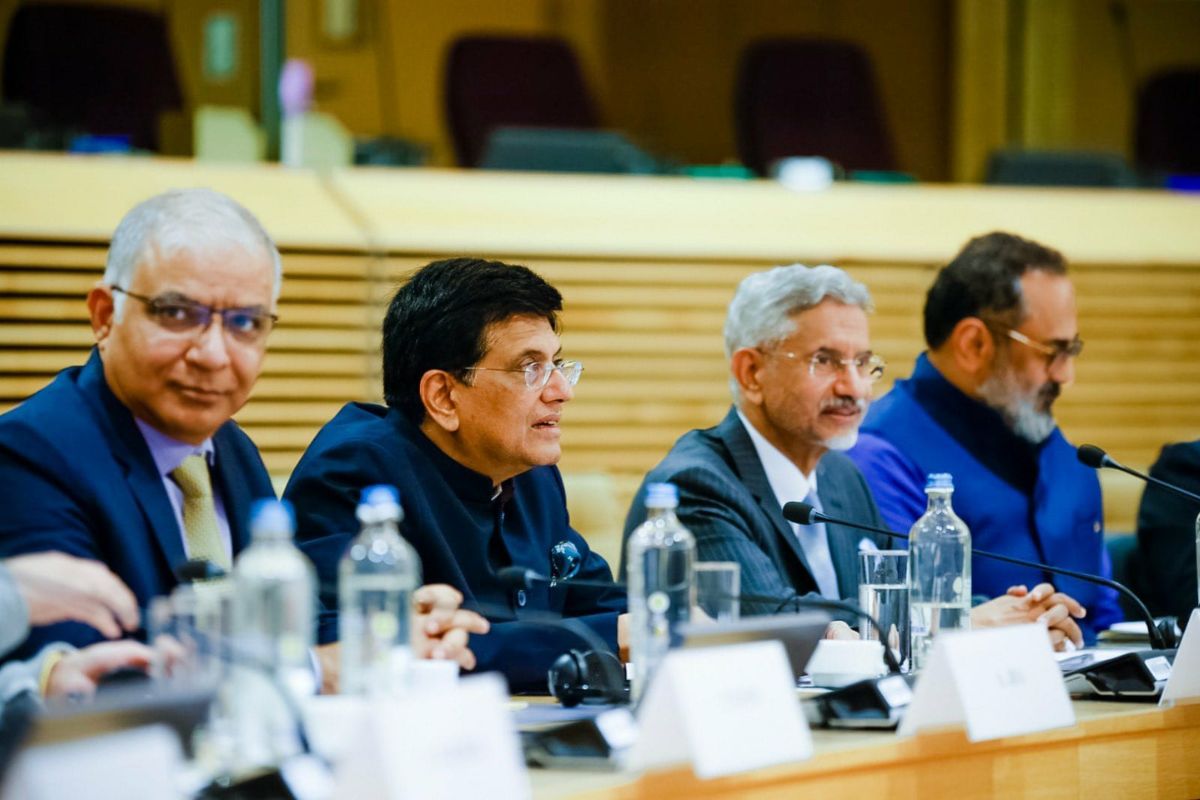The ongoing negotiations between India and the European Union (EU) for a free trade agreement have hit significant roadblocks, with Union Commerce Minister Piyush Goyal criticising the EU’s “irrational standards” and protectionist policies. These measures, according to Mr Goyal, have not only hindered trade expansion but have also eroded the spirit of mutual trust necessary for long-term commercial ties.
As India seeks to strengthen its global trade relationships, these disputes highlight the complexities of navigating international trade in an increasingly protectionist global environment. At the heart of Mr Goyal’s frustration is the EU’s proposed Carbon Border Adjustment Mechanism (CBAM), which aims to impose tariffs on imports of high-carbon goods like steel and cement. While the EU sees this as a vital step towards achieving its climate goals, countries like India view it as a punitive measure that unfairly targets emerging economies. The CBAM, scheduled to begin in 2026, is perceived as disrespecting the global consensus reached in the 2015 Paris Agreement.
Advertisement
This mechanism disproportionately affects countries like India, which, while being large carbon emitters, are still in the developmental phase and rely heavily on these industries for economic growth and employment. Another key issue is the EU’s decision to extend safeguard duties on select steel imports, which were initially set to expire this year, until 2026. This policy has been a particular point of contention, as it directly impacts India’s steel exports. For a country like India, which is among the top global steel producers, these protectionist measures create an uneven playing field. As Mr Goyal pointed out, these duties act as trade barriers, preventing Indian businesses from expanding their footprint in European markets. India’s grievances with the EU are not new. The two sides have been in talks for a free trade agreement since 2007, but negotiations were suspended in 2013 due to unresolved issues.
Talks were revived in 2022, with a hopeful target of concluding a deal by the end of 2023. However, the recent flare-up over the EU’s trade policies has cast a shadow over these negotiations, and the likelihood of a swift resolution seems remote. From an Indian perspective, the EU’s rigid stance is increasingly seen as counterproductive. While the EU has positioned itself as a global leader in climate action, its policies are often viewed as disproportionately favouring its own industries at the expense of others. This creates a scenario where developing economies, which are still heavily dependent on carbonintensive industries, are penalised without being given sufficient time or support to transition to greener technologies.
India’s frustration with the EU underscores a broader challenge that many emerging economies face in balancing economic development with global environmental commitments. While India remains committed to reducing its carbon emissions, the imposition of trade barriers in the name of environmental protection could stifle its growth. It also raises the question of fairness in global climate policy.











